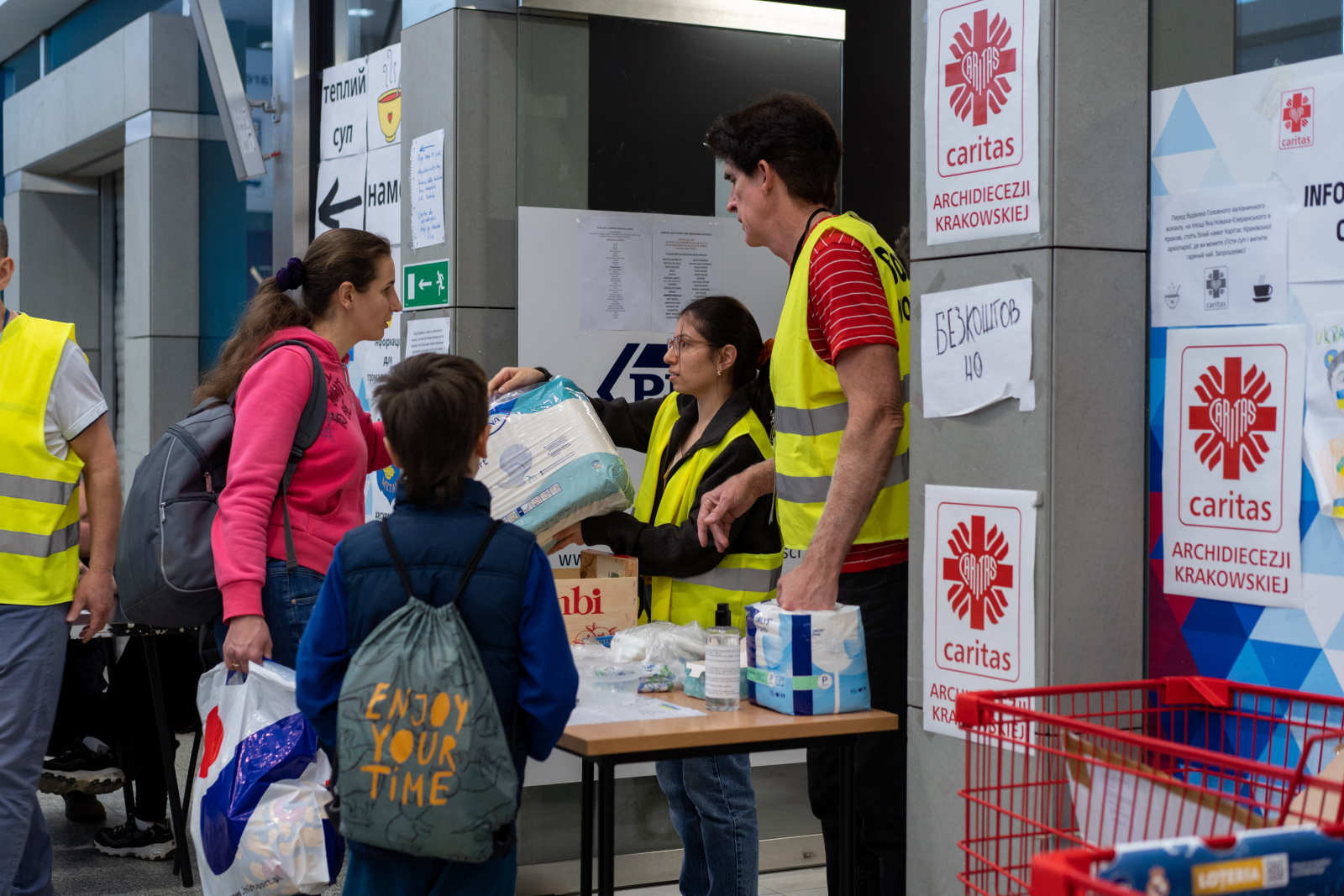
SHARE
The recent killing of two Polish citizens by missiles that landed in a Polish village near the Ukrainian border brought yet another sleepless night to residents across the country. For nine months, the war in Ukraine has been affecting the lives of Poles, as nearly 8 million Ukrainians have crossed the border since February 24 seeking and finding refuge in multiple Polish cities in Europe’s largest wartime refugee displacement since World War Two. As the US Ambassador to Poland Mark Brzezinski has said, “Poland has become a military, economic, and humanitarian hub for Ukraine.”
Larger cities in Poland, such as Krakow, have seen an increase in population by almost 20%. A report released in July 2022 by the Union of Polish Metropolises, using an innovative Geotrapping method aggregating information from mobile devices, revealed that 69% of Ukrainians staying in Poland are in the 12 largest cities and metropolitan areas, inflating the population of such cities as Rzesow by 35%, Gdansk and Katowice by 25% and Wroclaw by 23%. Poland’s resident population before the outbreak of the war was approximately 38 million – a small number of people to carry the burden of the sudden influx of refugees.
In Krakow, we have seen the city providing material aid to Ukraine from the city’s budget; many inhabitants donated money and in-kind contributions to support refugees, housing them in their homes. The city named an area outside of the Russian consulate as “Free Ukraine Square”, following other cities in naming public spaces in honor of Ukraine. According to the Polish Economic Institute’s August 2022 report, 77% of Poles have been directly involved in helping Ukraine refugees, spending an estimated $2 billion USD. But the challenges persist. Today, Poland grapples with accommodating approximately 800,000 children into an already stretched school system and finding jobs for the Ukranians who plan to stay and work in Poland. Refugees are primarily women and children, making integration into the Polish labor market impossible without building new childcare and educational capacities in larger cities.
In its own response, the National Democratic Institute’s Poland program has leveraged its existing cities network and adapted activities in response to the impact of the war. Since 2016 the Institute has engaged over thirty cities in Central Europe, under the Central Europe Democracy Initiative funded by the National Endowment for Democracy, which has strengthened citizen-driven policymaking, engagement and communications.
Four days after the outbreak of the war, the Institute hosted a regional conference in Prague on municipal engagement strategies, where NDI organized a special discussion on regional cooperation and coordination in response to the arrival of Ukrainian refugees, serving as a critical venue for information sharing among cities in the region. We later hosted workshops across Poland for mayors, deputy mayors, and other leading city officials in which more than one million Ukrainians took refuge, on crisis communications and on communicating with Polish and permanent residents of the cities to address their anxieties and policy concerns. In June and September, we took leading Polish cities alongside their Central Europe counterparts for study visits to Berlin and Wiesbaden to learn from German practices in citizen engagement in integrating refugee communities.
In October, NDI launched a new initiative to increase its support to municipal leaders accommodating refugees in Poland. NDI will also work with civic associations to provide municipal governments with feedback to advocate for policies inclusive of the Ukrainian community, particularly Ukrainian women, since 90% of refugees are women with children.
After last week’s Russian assaults, about 40% of Ukraine's critical energy infrastructure was damaged or destroyed, increasing the likelihood of future refugee waves from Ukraine. With no end to hostilities in sight, the local governments in Poland need stronger support from the national government and abroad. With limited housing capacities, 17% inflation, slowing economic growth, and soaring energy prices, the daily operations of leading cities’ services become a challenge.
Cities and municipal governments are at the forefront of every crisis. They are the first respondents to any contingency, and as our research indicates, the citizens view their work very favorably. As the United States and Europe scale their efforts to support the people of Ukraine, Poland’s cities have shown not only a compassionate response, but a dedication to policy responses that are inclusive of the viewpoints of the Ukranians residing in their cities. They must be central to any support strategy to safeguard Ukranians.
Author: Zuzana Papazoski, Resident Director in Poland and Resident Senior Director for Central Europe
###
NDI is a non-profit, non-partisan, non-governmental organization that works in partnership around the world to strengthen and safeguard democratic institutions, processes, norms and values to secure a better quality of life for all. NDI envisions a world where democracy and freedom prevail, with dignity for all.


